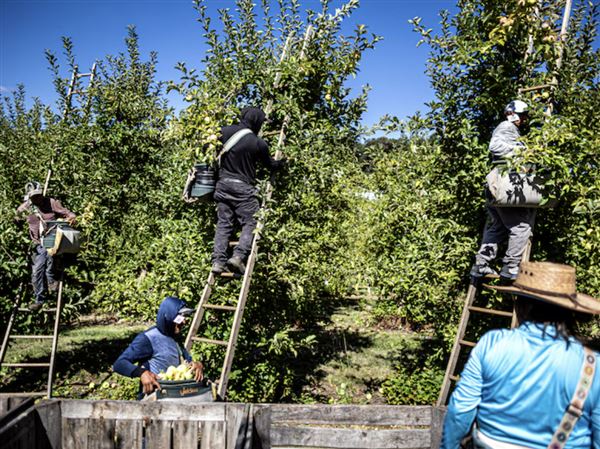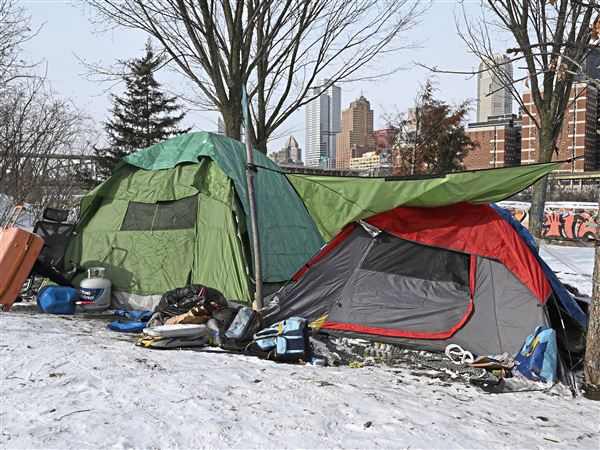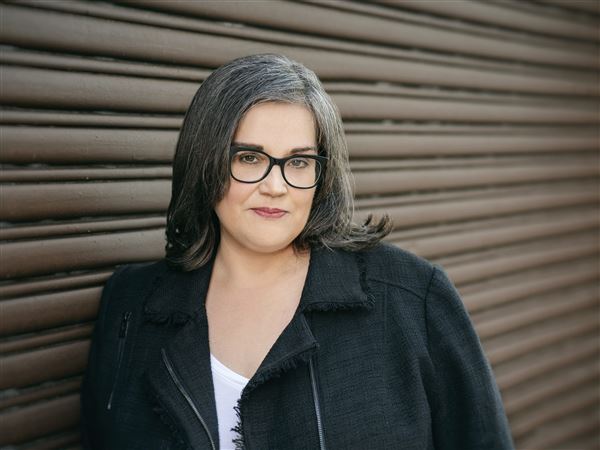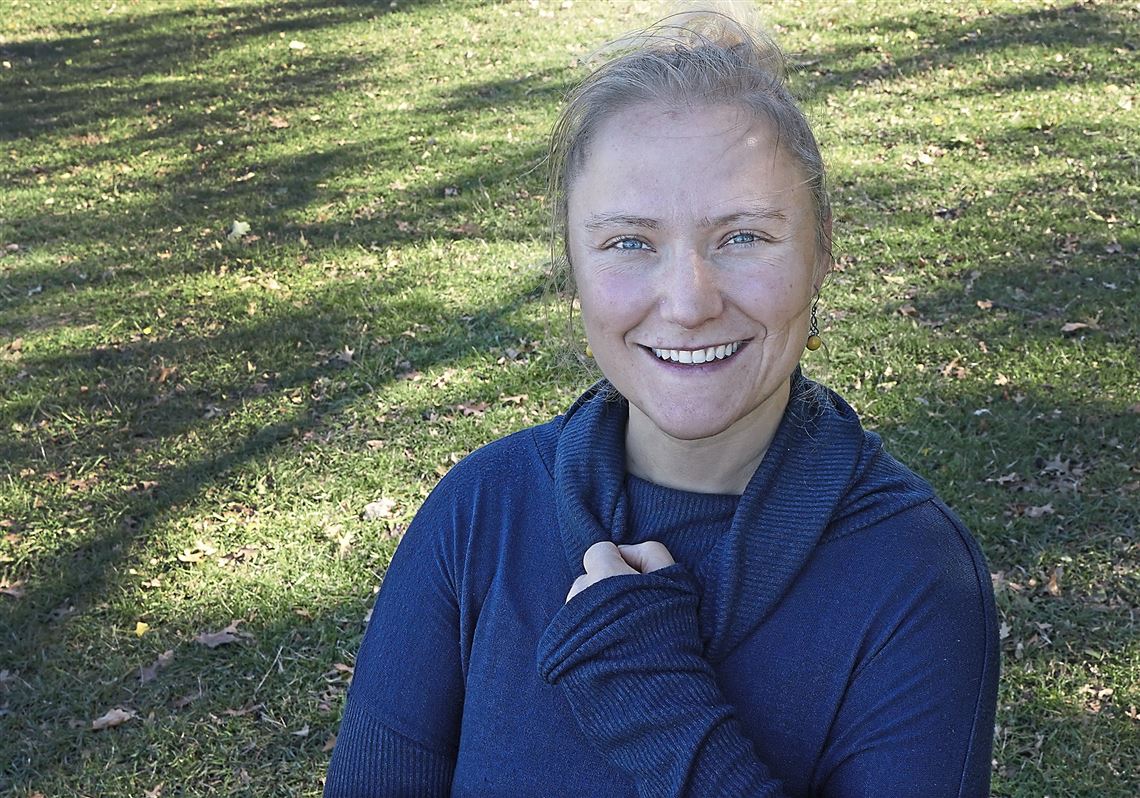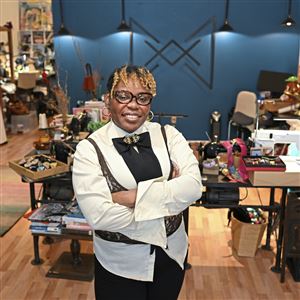Luda Bates loves the hard-working attitude of the Steel City.
“What I love about Pittsburgh is that it is a city of grinders,” she said on a sunny day in Oakland, where she and her husband, Derek, recently bought a house.
“There is no show here. People care about the work that you do. They get down to business and don’t mess around.”
Born in Ukraine in 1980, Ms. Bates has lived in America for 30 years. Her story is similar to those of the many Eastern European immigrants who came to Western Pennsylvania a century ago to work in the region’s steel mills and coal mines. She and her husband, a Presbyterian minister, have four children. Their lives are much different than hers as a child.
When she was 8 years old, her family moved from Ukraine to the Russian town of Anapa. Her mother, Vera, found part-time jobs, while her father, Peter, remained in eastern Ukraine to work the coal mines.
“My mother was responsible for cleaning certain areas in town,” Ms. Bates said. “So before we went to school, she would drop us off and my siblings and I would help clean a certain area. To this day, I hate cigarette butts because we had to sweep them up from the cracks in the sidewalks.”
The deterioration of daily life for many in Russia in the 1988 was clear as the vast social, political, and economic experiment of the Soviet Union was coming to an end. And while the country was experiencing seismic shifts — the Berlin Wall fell on Nov. 9, 1989 — the Ivanchuk family dreamed of America.
Under a Communist system that sought to erase most vestiges of religion, the family’s Baptist faith had no purchase on Russian soil.
“In Russia, the whole culture was used to train the Soviet person to submit to the Soviet ideology and Soviet morality,” Ms. Bates said. “Christians refused to submit to that ideology.”
The family petitioned the U.S. government for refugee status, and on Nov. 10, 1990, the Ivanchuks and their four children arrived in St. Louis with $1,000 and six suitcases filled with books and school supplies. The family did not speak English and did not know anyone.
“Honestly, what I thought about America was that if you pressed a button, borscht was going to come out,” Ms. Bates remembers. “We literally thought the streets were paved with gold.”
In the classroom, she rose to her new academic challenges. She received a partial scholarship to an all-girls Catholic high school, and then more scholarships to attend Saint Louis University, where she studied economics, international studies and Spanish. She graduated in 2003, the same year she married her husband, whose work brought them to Pittsburgh in 2008.
Before getting married, Ms. Bates went back to Ukraine during the summers to volunteer at a Christian camp in the town of Svyatohirsk.
“When I was in America, I felt like I was Ukrainian. Then I went back to Ukraine and all of a sudden I realized I am not Ukrainian. America had changed me so much. I’m a third-culture kid. You feel like you don’t belong anywhere.”
But origins leave lasting marks. In March 2014, Russian soldiers annexed the peninsula of Crimea in Eastern Ukraine. A month later, pro-Russian separatists seized the Ukrainian cities of Luhansk and Donetsk and declared them independent. More than 11,000 people have died and 1.5 million people have been displaced since the conflict began. The camp in Svyatohirsk was used to house refugees during the hostilities.
“I didn’t know how much I loved it until there was a war in 2014,” she said.
Ms. Bates has five siblings, two of whom were born in the United States. Her American-born siblings are different, she said.
“They couldn’t see the dissonance between what we were learning at school and through pop culture versus what we had absorbed in our culture before coming to America. They ate borscht and drank tea, but inside they were more American.”
Like her parents before her, Ms. Bates hopes to engender in her children an appreciation for America, and the understanding that some adversity is essential.
“We just moved from Squirrel Hill to Oakland and my kids are saying, ‘Life doesn’t make sense anymore.’ I’m thinking, ‘Are you insane!? This is your only adversity in life? You are still in the same school. Everything is the same.’”
On warm days, Ms. Bates likes to hang out on her porch, drink tea and talk to people. She hopes that her kids see themselves as part of the larger community.
She laments that she does not know more of her family history. Her grandparents — who lived through the Bolshevik Revolution and two world wars — were afraid to share their stories. The freedom to speak is another reason why the glow of her adopted homeland has not faded. She still marvels at the freedom to go to church, find a better job or study as an adult.
“I love that there are so many opportunities here to pursue your dreams and goals. And it’s not everywhere in the world that you can wake up in the morning and have a clear conscience that you didn’t have to cheat to survive. You have the ability to live here with a clear conscience.”
Timothy Lydon is a freelance writer. Contact: tlydon2@gmail.com.
First Published: December 9, 2020, 12:00 p.m.
